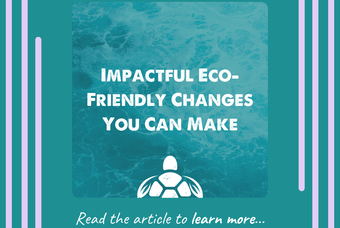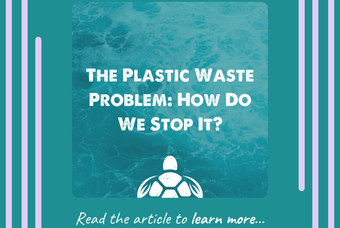The News-Hub/ Articles
Back to Articles
Recommended Articles
Fast Fashion is Destroying the World - Here's Why and What You Can Do to Help
The level of environmental damage caused by the fast fashion industry has been unprecedented.
Just two years ago, Burberry appalled consumers after burning over £90 million worth of goods to avoid having them being stolen or sold at cheaper prices. Despite the mass outcry in response to this wasteful action, this is not a singular occurrence. Sixty percent of all clothing has been thrown out or burned in incinerators within a single year. And by 2030, emissions from the fast fashion industry are predicted to rise by 60% more. Yet, the apparel sector is continuing to grow at significant levels. Worrying for climate change, isn’t it?
Many places are now calling on individuals to change their consuming habits, by encouraging second hand purchases or shopping at ethical fashion stores. And while consumers must do this if they can afford to do so, it is not enough to blame them alone.
The processes that occur within the fashion industry itself must change in order for consumers to follow suit.
For example, BBC Future suggests that recycling clothing has proven to be a problem for many due to the complex mixture of fabric and fibres that our clothes are made of. The fabrics and fibres come from a range of plastics, metals, natural yarns and manufactured filaments. The complicated combination of these different materials makes the fabric difficult to take apart from each other, which is necessary in order to recycle them. Doing so would require a whole workforce since it is a time consuming and meticulous job. Plus, the dyes need to be removed from the fabrics in a separate process.
But what about donating old clothes to second-hand clothes stores?
Asking consumers to shop responsibly and to donate to second hand stores is far better than destroying old clothes. However, donating to second hand stores simply passes the problem of waste along to other consumers.
Instead, we need to call on governments and companies to change the way clothing is made.
Organic cottons, or fibres like bamboo, decompose a lot more quickly than pleather, for example. Therefore, pressuring governments and companies to switch the process in which they produce clothes is absolutely vital for long-term and mass change.
To carry on as we are now is to raise the risk of climate change at an exponential speed. Change across the fast fashion industry needs to occur--the future of our planet depends on it.
To learn more about fast fashion check out this great article here...
Empty content. Please select category to preview











0 comments. Write a comment